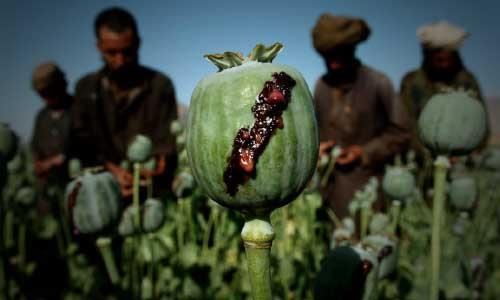
Afghanistan Poppy Cultivation Declines Opium Production Rises
(MENAFN- Daily Outlook Afghanistan) WASHINGTON - The White House in a statement, issued on February 7, 2020, released the results of the annual estimate of the US Government assessing the ‘poppy cultivation' and ‘potential opium production' in Afghanistan, 2011 through 2019.
The estimate indicates that the poppy cultivation decreased in 2019 than that of 2018.
The statement writes, 'Poppy cultivation in Afghanistan declined 28 percent, from 221,000 hectares in 2018 to 160,000 hectares in 2019. Conversely, potential pure opium production increased by 21 percent, from 5,550 metric tons in 2018 to 6,700 metric tons in 2019.
It, however, states that potential pure opium production has increased.
'Low opium prices at planting time drove the decline in cultivation. The rise in potential pure production is a direct result of favorable weather and harvesting conditions, the statement continues.
The statement underlines that the cultivation of poppy and the production of opium, in large scales, add to the challenges for the Afghan government to stabilize the ‘rule of law' and also, fuel insecurity and corruption.
'Important for law enforcement to take action against corrupt officials, Alice Wells, Principal Deputy Assistant Secretary says in a tweet.
The US government, through the statement, promises that it will continue to support the Afghan government in tackling this disastrous phenomenon.
'The consequences of Afghanistan heroin trafficking are felt by the citizens of Afghanistan and countries along worldwide drug trafficking routes. The United States Government will continue its work to enhance its longstanding partnership with the government of Afghanistan to address this serious problem, the statement noted. (ATN)

Legal Disclaimer:
MENAFN provides the
information “as is” without warranty of any kind. We do not accept
any responsibility or liability for the accuracy, content, images,
videos, licenses, completeness, legality, or reliability of the information
contained in this article. If you have any complaints or copyright
issues related to this article, kindly contact the provider above.

















Comments
No comment